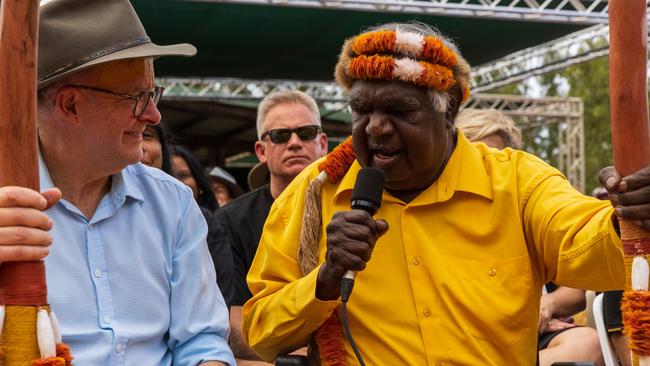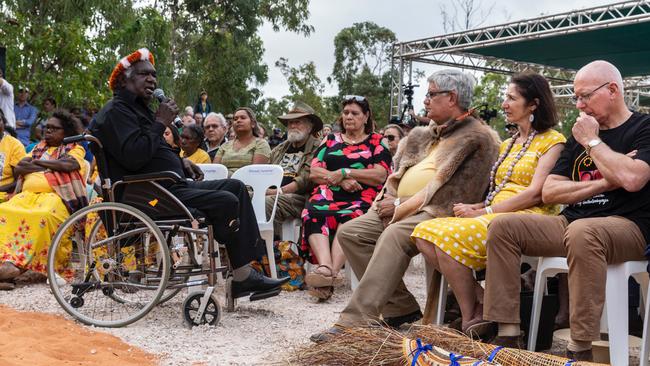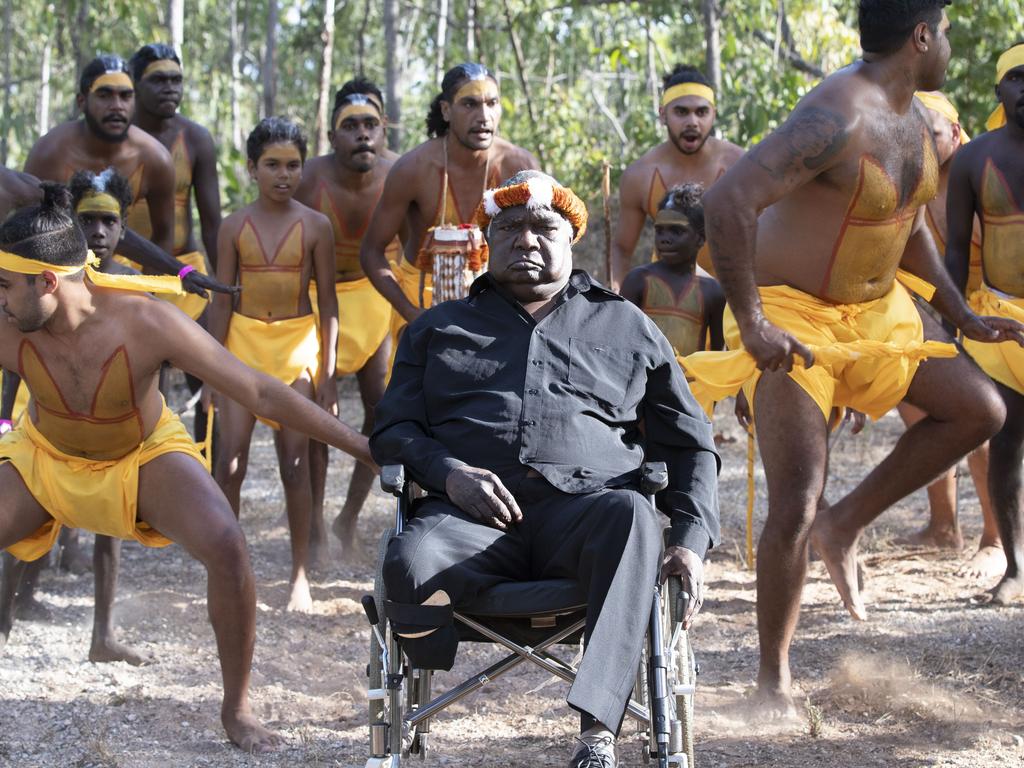Yunupingu seeking compensation from Gove Peninsula mining operation
Former Australian of the Year Galarrwuy Yunupingu will seek compensation from the Commonwealth for the acquisition and destruction of land on the Gove Peninsula.

Former Australian of the Year Galarrwuy Yunupingu will seek compensation from the commonwealth for acquisition and destruction of land on the Gove Peninsula, in a Federal Court case beginning in Darwin on Monday.
Dr Yunupingu, on behalf of the Gumatj clan from Northeast Arnhem Land, is seeking compensation for the impact on the native title of Aboriginal people when the commonwealth authorised Nabalco to begin mining operations at Gove in 1968.
He will claim the commonwealth breached section 51 (xxxi) of the Constitution by failing to act “on just terms” when it forced the mine on the Yolngu people without their consent and without compensation.
Legal experts have previously estimated the claim could be worth up to $700m and could open the door for similar claims.
Dr Yunupingu first signalled his intention to seek compensation during a speech at the Garma Festival in 2019.

“I’ll be fighting for the land rights case in which the mining company have come to Gove Peninsula without asking properly of the landowners of the place,” he said at the time.
“They have all come, getting (the) OK from the PM and the government of the country, to come all the way up to start digging and assaulting the country.”
Dr Yunupingu said Nabalco had destroyed sacred sites at Galupa where the mine sits, “ripping some land unmercifully”.
“They have damaged our country without seeking advice from us and they have damaged all of our dreamings, dreamings that were important to Aboriginal people,” he said.
Dr Yunupingu also described the destruction of sacred land near a tree the Gumatj called Dhanburama, in honour of a female spirit ancestor.
“One of the important areas was … where they fired a rock and blew it out and took the rocks away in pieces,” he said.
The tree was saved when Dr Yunupingu’s father, Mungurrawuy, stood in front of a bulldozer.
The issue was the subject of Australia’s first native title case, Milirrpum v Nabalco Pty Ltd – better known as the Gove land rights case – in 1971 when judge Richard Blackburn ruled against the local Yolngu people, rejecting their claims in part based on the doctrine of terra nullius.
The Milirrpum case was overturned by the High Court’s decision in the 1992 Mabo case, when terra nullius was found to be false.
The Yunupingu case relies on the proposition that the native title of the Gumatj clan was property and acquired by the commonwealth without consent.
The commonwealth argues section 51 (xxxi) of the Constitution does not apply in the territories, pointing to the 1969 Teori Tau case where the High Court rejected the claims of Papuans from Bougainville Island who had opposed the construction of a copper mine.
The Gumatj – supported by the neighbouring Rirratjingu clan and the Northern Land Council - say that ruling was overturned in the 2009 case Wurridjal vs Commonwealth, where three plaintiffs from Maningrida successfully argued against the acquisition of their township for a five-year lease as part of the Northern Territory Intervention, on the basis it had not been acquired “on just terms”.
The commonwealth also argue that native title is “inherently defeasible” and so susceptible to extinguishment by the acts of the commonwealth that it should not be recognised as a form of property for the purposes of the Constitution.
The NT supports the commonwealth’s position.
Judges Debra Mortimer, Mark Moshinsky and Katrina Banks-Smith will hear the case.
Matt Cunningham is Sky News Northern Australia Correspondent








To join the conversation, please log in. Don't have an account? Register
Join the conversation, you are commenting as Logout